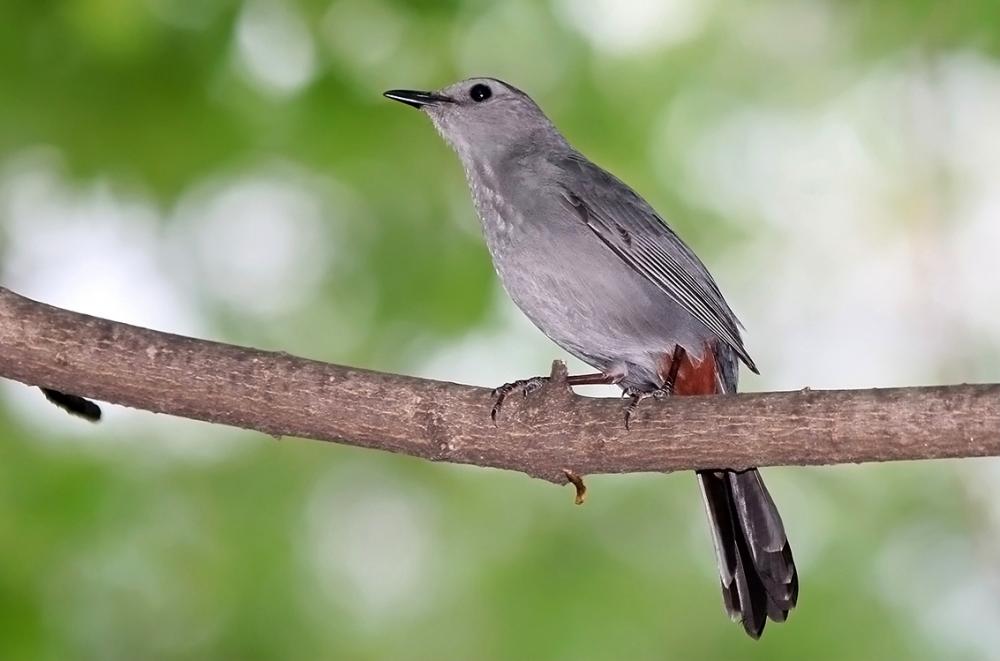Guide to Boreal Birds
Overview
This bird is often seen in suburban gardens. It forages mainly on the ground, gleaning insects from litter and low bushes and eats fallen berries during late summer and fall. It does not uncover litter with its feet like a sparrow but pokes with its bill, turning leaves and twigs to find the food underneath. Formerly known simply as the "Catbird," this bird has had its name changed officially to Gray Catbird because there is an all-black species, the Black Catbird (Melanoptila glabrirostris), in southern Mexico. It often announces its presence by a harsh, cat-like whine issuing from a dense tangle of vegetation; the bird responds to an imitation of this call, popping suddenly into view for a better look.
Description
8-9 1/4" (20-23 cm). Smaller than a robin. A slender, long-tailed, dark gray bird with black cap and rusty undertail coverts.
Voice
A long, irregular succession of musical and mechanical notes and phrases; a cat-like mewing. Sometimes seems to mimic other birds.
Nesting
4 or 5 glossy blue-green eggs in a bulky mass of twigs, stems, and leaves, lined with finer plant material and concealed in a dense bush or in a tangle of vines.
Habitat
Thickets and brush, residential areas and gardens.
Range/Migration
Breeds from British Columbia, Manitoba, and Nova Scotia south to Washington, Texas, and Georgia. Winters from Carolinas and Gulf Coast southward, small numbers occur regularly to southern New England.



